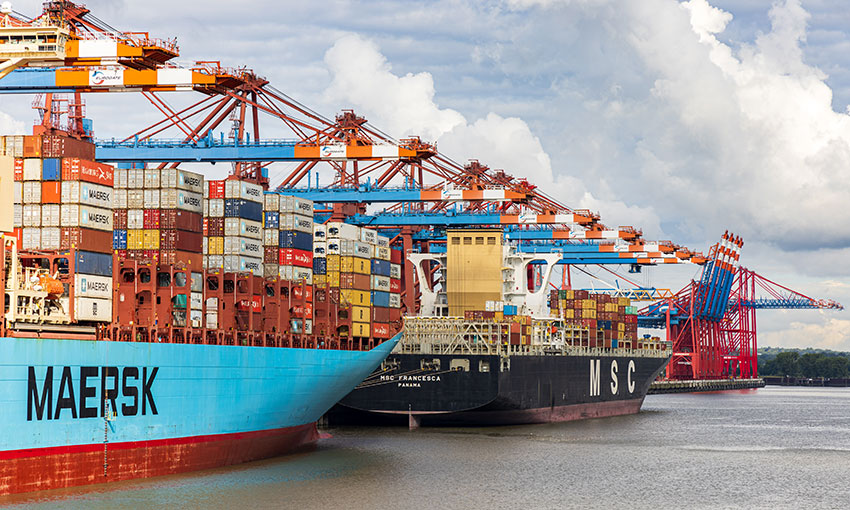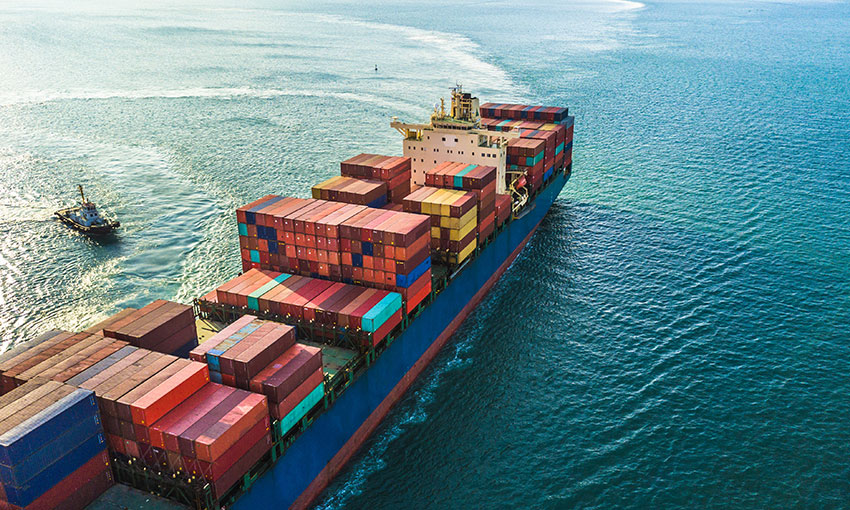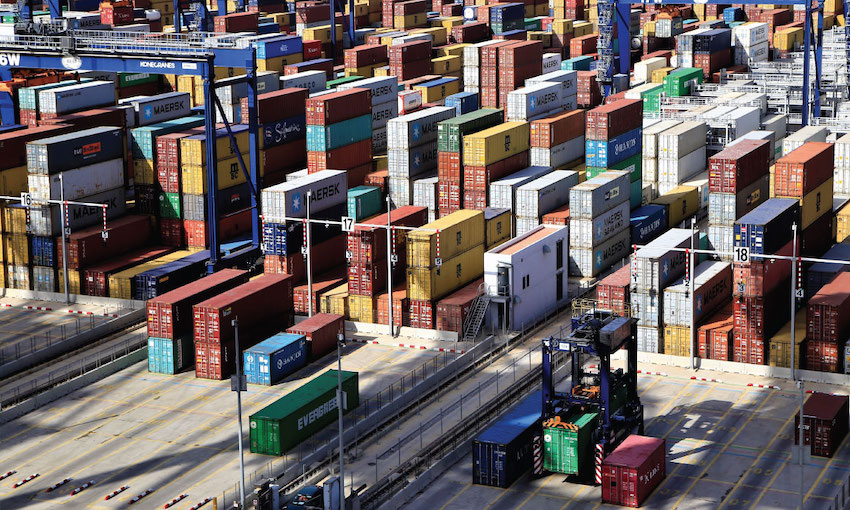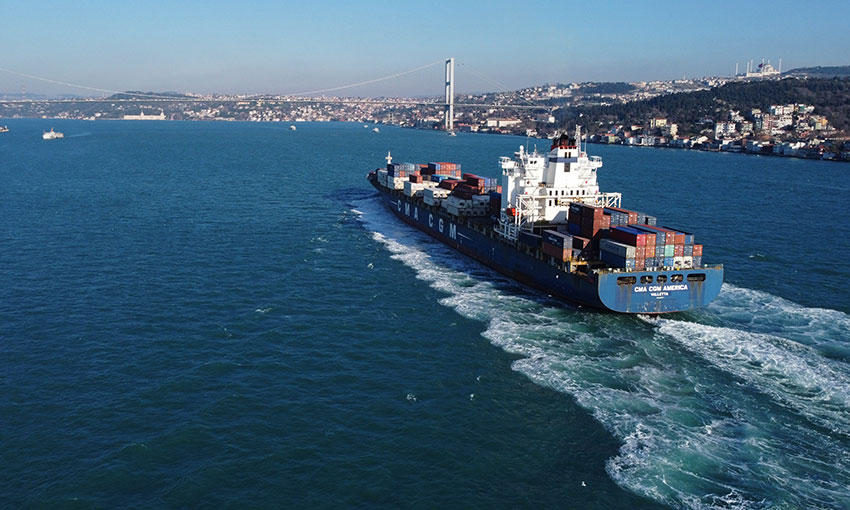THE UNITED Nations Conference on Trade and Development is calling for greater investment in ports, shipping fleets and landside logistics.
UNCTAD explored issues in the maritime supply chain in its Review of Maritime Transport 2022, published on Tuesday (29 November).
It said the supply chain crisis of the last two years had shown how misalignment between demand and supply of maritime logistics capacity leads to surges in freight rates, congestion and interruptions to global value chains.
“We need to learn from the current supply chain crisis and prepare better for future challenges and transitions,” UNCTAD secretary-general Rebeca Grynspan said.
“This includes enhancing intermodal infrastructure, fleet renewal and improving port performance and trade facilitation.
“And we must not delay the decarbonisation of shipping.”
Freight rates
The maritime transport review found logistics supply constraints and a surge in demand for consumer goods pushed container spot freight rates five times higher than pre-pandemic levels in 2021.
Container spot freight rates reached a historical peak in early 2022, according to UNCTAD.
Rates have dropped since mid-2022 but remain high for oil and natural gas tanker cargo due to the ongoing energy crisis, the report said.
It said the war in Ukraine and prolonged pandemic-related disruptions drove up dry bulk freight rates.
UNCTAD said a simulation projected higher grain prices and dry bulk freight rates could lead to a 1.2% increase in consumer food prices, with higher increases in middle- and low-income countries.
Shamika Sirimanne, director of UNCTAD’s technology and logistics division, said the supply-chain crisis proved ports and shipping matter for a well-functioning global economy.
“Higher freight rates have led to surging consumer prices, especially for the most vulnerable,” she said.
“Interrupted supply chains led to lay-offs and food insecurity,” she said.
UNCTAD encouraged countries to assess potential changes in shipping demand, upgrade port infrastructure and hinterland connections, bolster port connectivity, expand storage and warehousing space and capabilities and minimise labour and equipment shortages.
Cutting emissions
On the decarbonisation front, UNCTAD’s report suggests total carbon emissions from the world maritime fleet increased by 4.7% between 2020 and 2021.
It attributed most increases to containerships, dry bulk and general cargo vessels.
UNCTAD said its findings raised concern around the increasing average age of ships. The current average age is 21.9 years by number of ships, and 11.5 years by capacity.
According to the report, ships are ageing partly due to uncertainty around future technological developments, the most cost-efficient fuels, changing regulations and carbon prices.
“Investments in new ships that reduce greenhouse gas emissions will be hampered by surging borrowing costs, a darkened economic outlook and regulatory uncertainties,” UNCTAD said.
“UNCTAD calls for more investment in technical and operational improvements to cut the carbon footprint of maritime transport.
“These include switching to alternative, low or zero-carbon fuels, optimising operations, using on-shore electricity when in ports and equipping vessels with energy-efficient technology.”
The report also calls for a predictable global regulatory framework for investing in decarbonisation and increased support for developing countries in the energy transition.
It underlined the need to adapt ports to the impacts of climate change, especially in the most vulnerable nations.
Competition and market consolidation
UNCTAD said the container shipping sector has been transformed by horizontal consolidation through mergers and acquisitions.
Shipping carriers have also pursued vertical integration by investing in terminal operations and other logistics services, it said.
The report indicates between 1996 and 2022, the top 20 carriers increased their share of container-carrying capacity from 48% to 91%.
And, over the past five years, the four largest carriers increased their market shares to control more than half the global capacity.
“The number of companies that provide services to importers and exporters fell in 110 countries, notably in small island developing states, where at times a duopoly of just two carriers dropped to a monopoly of one,” UNCTAD said.
“Market consolidation results in reduced competition, constrained supply, and can lead to market power abuse and higher rates and prices for consumers.”
The organisation also raised concern about ship oversizing.
“Between 2006 and 2022, the size of the world’s largest container ships more than doubled from 9380 TEU to 23,992 TEU,” UNCTAD said.
“The size of the largest ship in each country almost tripled, thus ships grew faster than the volumes of cargo to fill them.”
UNCTAD is urging competition and port authorities to respond to industry consolidation with measures to protect competition.
The report calls for stronger international co-operation on cross-border, anticompetitive practices in maritime transport, based on the United Nations set of principles and rules on competition.
Maritime trade expected to slow
The Review of Maritime Transport 2022 indicates international maritime trade bounced back in 2021 with an estimated growth of 3.2% and overall shipments of 11 billion tons.
UNCTAD said the latest figures are a 7% improvement compared to the 3.8% decline in 2020.
For 2022, UNCTAD projects global maritime trade growth to moderate to 1.4%.
And, between 2023 and 2027, it is expected to expand at an annual average of 2.1%, a slower rate than the previous three-decade average of 3.3%.




